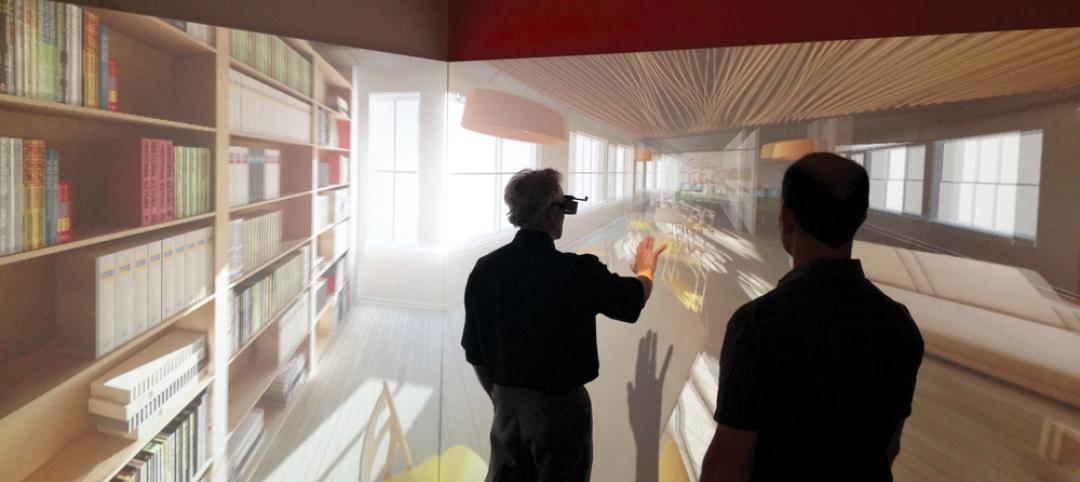The Board of Directors of the American Institute of Architects (AIA) voted to posthumously award the 2017 AIA Gold Medal to Paul Revere Williams, FAIA, whose portfolio of nearly 3,000 buildings during his five-decade career was marked with a number of broken barriers. The Gold Medal honors an individual whose significant body of work has had a lasting influence on the theory and practice of architecture. Williams’ legacy will be honored at the 2017 AIA National Convention in Orlando.
Williams, the first African-American architect to receive the AIA Gold Medal, was born in Los Angeles in 1894. He was orphaned by the age of four and was later raised by a foster mother who valued his education and encouraged his artistic development. Despite a high school teacher’s attempts to dissuade him from pursuing architecture for fear that he wouldn’t be able to pull clients from the predominantly white community while the black community would not sustain his practice, Williams persevered.
Williams garnered accolades in architectural competitions early in his career while developing tactics like rendering his drawings upside down so that his white clients could view his work from across the table rather than by sitting next to him. Williams was the first black architect to become a member of the AIA, and, later, the first black member to be inducted into the Institute’s College of Fellows. Williams opened his practice in the early 1920s when Southern California’s real estate market was booming. His early practice focused both on small, affordable houses for new homeowners and revival-style homes for his more affluent clients.
Williams’ practice expanded and among the 2,000 homes he designed included graceful private residences for legendary figures in business and entertainment such as Lucille Ball and Desi Arnaz, Lon Chaney, Frank Sinatra, and Barron Hilton.
While Williams was more than comfortable with the historical styles endemic to Southern California, his fluency in modernism is reflected in the work outside of his residential practice. Among his number of schools, public buildings, and churches are American architectural landmarks, including the Palm Springs Tennis Center (1946) designed with A. Quincy Jones, the space age LAX Theme Building (1961) designed with William Pereira, Charles Luckman, and Welton Becket, and his 1949 renovation of the iconic Beverly Hills Hotel. Eight of Williams’ works have been named to the National Register of Historic Places.
Williams, who passed away in 1980 is the 73rd AIA Gold Medalist. In recognition of his legacy to architecture, Williams’ name will be chiseled into the granite Wall of Honor in the lobby of the AIA headquarters in Washington, D.C.
Related Stories
| Sep 15, 2014
Gen-Y-focused multifamily development under way in L.A.
The new urban residential community at 1001 S. Olive Street will offer open floor plans consisting of 64 studios, 109 one bedroom units, and 28 two-bedroom units, ranging in size from approximately 500 sq ft to 1,100 sq ft.
| Sep 14, 2014
Ranked: Top Veterans Administration sector AEC firms [2014 Giants 300 Report]
CannonDesign, Clark Group, and URS top BD+C's rankings of the nation's largest Veterans Administration building sector design and construction firms, as reported in the 2014 Giants 300 Report.
Sponsored | | Sep 13, 2014
5 common questions leaders should never ask
Asking the right questions can help business leaders to anticipate changes, seize opportunities and move their firms in new directions. SPONSORED CONTENT
| Sep 13, 2014
Why CEOs shouldn’t be afraid to ask for outside help
An oven-overlooked factor in assessing the success of a leader, according to organizational development consultant Brook Manville, is his or her ability to go far outside the organization to get help in solving problems. SPONSORED CONTENT
Sponsored | | Sep 13, 2014
Right Way Plumbing finishes first at Max Planck Florida Institute
The Max Planck Florida Institute consists of a three-story, 100,000-sf scientific research facility with 30,000 feet of copper joined with Viega ProPress fittings.
| Sep 12, 2014
Total immersion: Has virtual reality's time finally come?
The emergence of low-cost VR technology means that anyone with a few hundred bucks and a decent workstation can get in the game. But, as our experts reveal, pulling off VR is not so simple.
| Sep 12, 2014
Will on-site parking remain king in the development world?
In spite of the trend away from multi-car residences, not much has changed with regard to parking spot allocations within apartment buildings and other multi-unit residential developments, writes GS&P's Doug Sharp.
| Sep 11, 2014
5 competing designs unveiled for Presidio Parklands in San Francisco
To turn the underdeveloped area by Chrissy Field into new public space, San Francisco's Presidio Trust unveiled the five designs by five teams they invited earlier this year.
| Sep 11, 2014
Cintas invites public to vote for 'America's best restroom'
For the 13th consecutive year, Cintas Corporation is back with its popular America’s Best Restroom Contest. A team of survey editors once again scanned the country for the most creative and clean public restrooms and produced a crop of nominees sure to please.
| Sep 10, 2014
Ranked: Top transit facility sector AEC firms [2014 Giants 300 Report]
Leo A Daly, URS, and Skanska head BD+C's rankings of the largest transit facility sector design and construction firms, based on the 2014 Giants 300 Report.
















